- Home
- Iris Murdoch
A Severed Head Page 5
A Severed Head Read online
Page 5
‘You’re an artist,’ I said, ‘and for you doing nothing is doing something. No. I shall get back to Wallenstein and Gustavus Adolphus and What Is a Good General.’ I had for some time been quietly engaged on a monograph on the Thirty Years War in which the competence of these two commanders was compared. This was to be a chapter in a projected larger work on what constituted efficiency in a military leader.
‘There are no good generals,’ said Alexander.
‘You are the dupe of Tolstoy who thought all generals were incompetent because all Russian generals were incompetent. Anyway, I shall try to work more seriously in future. Antonia, it must be admitted, was time-consuming.’
‘Beautifully,’ said Alexander. He sighed again and we were silent for a minute.
‘Show me some of the results of your inactivity,’ I said.
He rose and pulled back the curtain. He turned the switch in the studio and a number of strips flickered to life overhead, producing the illumination of an overcast afternoon in spring. The great room, which was a Cotswold barn converted by my mother, retained its high roof and rough-hewn wooden rafters from whose scored crevices the warm oily air, gently circulating, seemed to sift down an ancient dust. The long work table, with its scrubbed surface and neat groups of meticulously cleaned tools, spanned the farther wall. Other things, though with an air of having their own places, were dotted about: pieces of uncut stone, enormous tree roots stacked like a tent, wooden blocks of various sizes, like overgrown nursery bricks, tall objects covered with damp grey cloths, a box full of ornamental gourds, a pillar of ebony shaped by nature or art, it was hard to tell which. A row of clay bins flanked the wall by the window, and at the far end was a population of plaster casts, torsos, swinging headless bodies, and heads mounted on rough wooden stands. The floor of blue imitation Dutch encaustic tiles was covered, according to a fantasy of Alexander’s, with dry rushes and straw.
Alexander crossed the room and began carefully to undo the cloths which draped one of the tall objects. A revolving pedestal began to appear with something mounted upon it. As he removed the last cloth he switched off the centre lights and turned on a single anglepoise lamp on the work table which he swung round towards the pedestal. There was a clay head in the first stages of composition, the early stages when the wire framework had been roughly filled out and then the clay laid over it in various directions in long strips until the semblance of a head appears. This particular moment has always seemed to me uncanny, when the faceless image acquires a quasi-human personality, and one is put in mind of the making of monsters.
‘Who is it?’
‘I don’t know!’ said Alexander. ‘It’s not a portrait. Yet I feel odd about it, as if I were looking for the person it was of. I’ve never worked quite like this and it may be useless. I did some quite non-realistic heads, you remember, ages ago.’
‘Your perspex phase.’
‘Yes, then. But I’ve never wanted to do an imaginary realistic head before.’ He moved the lamp slowly and the oblique light made dark lines between the strips of clay.
‘Why don’t modern sculptors do them?” I asked.
‘I don’t know,’ said Alexander. ‘We don’t believe in human nature in the old Greek way any more. There is nothing between schematized symbols and caricature. What I want here is some sort of impossible liberation. Never mind. I shall go on playing with it and interrogating it and perhaps it will tell me something.’
‘I envy you,’ I said. ‘You have a technique for discovering more about what is real.’
‘So have you,’ said Alexander. ‘It is called morality.’
I laughed. ‘Rusted through lack of practice, brother. Show me something else.’
‘Who is this?’ said Alexander. He turned the anglepoise directly upward and revealed a bronze head which was mounted on a bracket above the work table.
I felt a shock of surprise even before I recognized it. ‘I haven’t seen that in years.’ It was Antonia.
Alexander had done the head in the early days of our marriage and then professed dissatisfaction with it and refused to part with it. It was in a light golden bronze and showed a youthful forward-darting Antonia that was not quite familiar to me: a champagne-toasted dancing-on-the-table Antonia that seemed to belong to another age. The shape of the head was excellent, however, and the great flowing pile of hair at the back, wildly tressed and somewhat Grecian: and the big rapacious slightly parted lips, these I knew. But it was a younger, gayer, more keenly directed Antonia than my own. Perhaps she had existed and I had forgotten. There was nothing there of the warm muddle of my wife. I shivered.
‘It can’t be her without the body,’ I said. Antonia’s swaying body was an essential part of her presence.
‘Yes, some people are more their body than others,’ said Alexander, as he played the beam over his head, unshadowing a cheek. ‘All the same, heads are us most of all, the apex of our incarnation. The best thing about being God would be making the heads.’
‘I don’t think I like a sculpted head alone,’ I said. ‘It seems to represent an unfair advantage, an illicit and incomplete relationship.’
‘An illicit and incomplete relationship,’ said Alexander. ‘Yes. Perhaps an obsession. Freud on Medusa. The head can represent the female genitals, feared not desired.’
‘I didn’t mean anything so fancy,’ I said. ‘Any savage likes to collect heads.’
‘You wouldn’t let me collect yours!’ said Alexander. I had never let Alexander sculpt me, though he had often begged.
‘To carry on your pike? No!’ As we laughed he drew his hand over the back of my head, feeling the shape under the hair. A sculptor thinks from the skull outwards.
We stood for a little longer looking up at the head of Antonia until I felt the misery rising in my heart. I said, ‘I could face a stiff drink soon. By the way, I sent off a case of Vierge de Cléry and some brandy.’
‘They came this morning,’ said Alexander. ‘But no port! All claret would be port if it could.’
‘Not if I could catch it in time!’ I said. We had this argument every Christmas.
‘I’m afraid we’ve got the usual mob coming tomorrow,’ said Alexander. ‘I wasn’t able to put them off. Rosemary says they look forward to it! But with luck we may be snowed up.’
We wandered across to the door and opened it, pausing on the threshold to look at the scene outside. The cold air touched us sharply. It was darker now, but the last light of day lingered with a living glow which seemed to emerge from the snow itself. The white untrodden sheet stretched away to where the two great acacia trees, loaded now and half sketched in in black, marked the end of the lawn and framed the now hidden vista of hills wherein were folded the lost ironstone villages of Sibford Gower and Sibford Ferris. The snow fell silent and straight down out of a windless sky, and through the open door we apprehended its positive silence. We were shuttered as in a tomb. Then darkly blurred as in a Chinese picture, a blackbird on its way to roost moved suddenly in the lee of a bush, turned its head towards us, and then sped away noiselessly low over the snow. In the last twilight of the afternoon we saw its eye and its orange beak.
‘The ousel-cock, so black of hue,
With orange-tawny bill,’
Alexander murmured.
‘You quote too aptly, brother.’
Too aptly?’
‘You don’t recall the rest?’
‘No.’
‘The throstle with his note so true,
The wren with little quill,
The finch, the sparrow, and the lark,
The plain-song cuckoo grey,
Whose note full many a man doth mark,
And dare not answer nay.’
Alexander was silent for a moment. Then he said, ‘Have you been faithful to Antonia?’
The question took me by surprise. However I replied at once, ‘Yes, of course.’
Alexander sighed. The light came on in the drawing-room and cast into the darkeni
ng air a cone of gold into which the snowflakes, grey now and scarcely visible above, filtered to become, before they came to rest, tinsel for a moment. The evergreen kissing bough which Rosemary laboriously plaited every Christmas, as my mother had taught her to do, was to be seen hanging in the window, decked with coloured balls, and oranges and long-tailed birds and candles and hung with mistletoe; and now I could see my sister mounting on a chair to set the candles alight. They flickered, and then rose in a strong glow as the old ambiguous symbol swayed slightly in the breeze that always haunted those tall ill-fitting Victorian windows.
‘Why “of course”?’ said Alexander.
At that moment we heard the tinkle of the piano. Rosemary was beginning to play a carol. It was Once in Royal David’s City. I took a deep breath and turned away from the door. I crossed the room to collect my cigarettes which I had left in the bay-window. Alexander, who did not seem to expect an answer to his question, had turned the anglepoise back to shine upon his unfinished head. We contemplated it together to the distant sound of the piano. I had known that it reminded me of something, something sad and frightening, and as I looked now at the damp grey featureless face I remembered what it was. When my mother had died Alexander had wanted to take a death mask, but my father had not let him. I recalled with a sudden vividness the scene in the bedroom with the still figure on the bed, its face covered with a sheet.
I shuddered and turned to the doorway. It was quite dark outside now. The snow fell, invisible save in the light from the window, into the depths of its own sleep. Rosemary began to play another verse.
Seven
My darling Georgie,
I have not spent Christmas quite as I expected. On the evening when I last saw you Antonia suddenly announced that she wished to leave me and to get married to Palmer Anderson. I won’t tell you the details now, but it looks as if this is what is going to happen. Nor can I tell you exactly what my feelings are. I don’t altogether know myself. As you may imagine, I am suffering from shock. Indeed, I feel scarcely sane and nothing seems solid any longer or real for the present. You will understand that there is nothing more I can say just now. I needed to tell you the facts anyway and it is a great relief simply to be writing to you. Hope and fear nothing if you can. Oh, sweetheart, I have never felt more wretchedly incapable of any bright or adventurous destiny. I feel half faded away like some figure in the background of an old picture. Try at least if you can, to restore to me some sense and some vigour. Darling child, your love and your devotion have been so precious to me: support me now with patience. Excuse this cowardly and distracted letter. Your discredited prince kisses your feet. I am simply too miserable to think straight. Please bear with me and go on loving me. If I can I’ll call on you tomorrow at the usual time. If I can’t come I’ll telephone about then.
M.
I finished the letter and put it hastily into my pocket. Antonia and Rosemary were descending the stairs, still trying to talk both at once.
‘And the whole building has oil-fired central heating,’ Antonia was saying.
I got up from where I had been sitting at the Carlton House writing-table and went over to the fireplace. It was early afternoon, but very dark outside, and the lamps had already been turned on. Two electric fires were burning in the room, but Antonia had insisted on lighting a coal fire as well, to cheer me up, as she put it.
They came in and stood side by side looking at me with the look of tender delighted concern with which women look at babies. The concern was sharpened in Rosemary’s case by curiosity, in Antonia’s by anxiety. Rosemary in her smart grey unobtrusive London clothes was tiny beside my wife.
‘Antonia has been telling me about your flat,’ said Rosemary. ‘It sounds ideal. And there’s a heavenly view over to Westminster Cathedral.’
‘Well, you know more about it than I do,’ I said. Palmer had found me a flat in Lowndes Square. It appeared to be all right.
‘But you wouldn’t let me tell you this morning!’ exclaimed Antonia. ‘Isn’t he dreadful?’ to Rosemary. ‘Don’t you even want to see it?’
‘Not specially.’
‘Dear heart, don’t sulk,’ said Antonia. ‘You’ll have to make some decision soon about the furniture. Rosemary and I have just been measuring curtains, and the landing and Blue Room ones will fit exactly without alteration.’
‘What luck.’
‘Well, I want to see it,’ said Rosemary, ‘even if you don’t. Antonia’s given me the key and I’m going over there now. Are you sure you don’t want to come, Martin?’
‘Yes.’
‘I must be off then,’ said Rosemary. ‘I must say I’m limp already. I’ll drop the key in this evening. ‘Bye, Martin darling, ‘bye, Antonia.’ She patted my shoulder and then stood on her toes to peck Antonia’s cheek. She and my wife seemed quite wrapped up in each other now.
Antonia saw her to the door. I could hear her saying, ‘And let me know what you think about the pelmets.’ The door closed.
I stood by the fireplace watching the flames, and trying to clean out an old pipe which I had found - I occasionally smoked a pipe. I heard Antonia come back into the room. She came across to stand opposite to me. I stared at her and she stared steadily back, unsmiling now. It was the first time we had been alone together since I had returned accompanied by Rosemary. Already, through the secret chemistry of the situation, Antonia and I were two new and different people. We regarded each other with a dismay behind which, in my case, there lurked an abject terror, ready to probe the difference. I felt suddenly dizzy with pain and unable to face whatever scene was to follow. I went back to scraping the pipe. I said, ‘Well, you’ve made one person blissfully happy. Rosemary adores catastrophes.’
‘Martin, darling,’ said Antonia. She said it lingeringly, with an insistent tenderness of reproach. She stood there before me, her stomach pouting, her hip jutting, her body twisted in such a dear familiar way. A snowy white silk blouse, falling well open, showed off her long neck. Her bun was coiled in a neat golden ball almost as large as her head. I looked at her again and saw her sharply for the first time since our rupture as a separate person and no longer a part of myself.
‘You are pleased about the flat, aren’t you?’
‘Yes, very.’
‘Don’t be cross with me,’ said Antonia. ‘It hurts so much.’
‘I’m not cross.’
‘Anderson took a lot of trouble to find the flat.’
‘It’s very kind of him, especially when he has so many other things to think about.’
‘Whatever would he be thinking about, what would either of us be thinking about,’ said Antonia, ‘but you? We think of nothing else!’
‘Sweet of you,’ I said. I began to fill the pipe.
‘Please, darling,’ said Antonia, ‘don’t do that.’
‘Don’t do what, for Christ’s sake?’
‘Be so sort of blank and sarcastic. And please, if you can, be nice to Anderson. He’s so terribly worried about what you feel about him and so terribly anxious to please you. You could hurt him dreadfully by the smallest thing.’
‘I’m not being blank and sarcastic,’ I said. ‘I am grateful to Palmer. But I do wish everyone would stop scheming for my welfare. I’m perfectly well able to look after myself.’ I lit the pipe. It tasted foul.
‘But we want to look after you!’ said Antonia.
As I didn’t reply, she sighed and turned away to pull the curtains across the darkened windows. A thick yellow fog had covered London all day, turning the day to night, and filtering into the house to bring even to Antonia’s, no longer Antonia’s, rose-scented drawing-room a faint bitter smell and a fainter haze. The snow which had lain so thick and beautiful when I left the country was scarcely to be seen in the city, lingering only in diminishing white patches on roofs or on less frequented pavements in long iron-grey streaks of ice. I sat down on the sofa and began knocking out the pipe against the mantelpiece.
Antonia came back to me. ‘
You’re making a nasty mark there.’
‘It doesn’t matter now.’
‘It does matter, Martin. Every single little thing matters.’
The cosier, the more enclosed, scene seemed to give her confidence. She reached out and took the pipe away from me. Then she sat down beside me and tried to take my hand. I withdrew it. It was like a strange courtship scene. I said, ‘No, Antonia.’
She said, ‘Yes, Martin,’ and laid her hand again on the sleeve of my coat. I began to tremble.
‘It isn’t enough,’ I said, ‘must you do this as well?’
‘It’s important, Martin,’ said Antonia. ‘Don’t flee from me. We must still be able to touch each other.’
‘Does your psycho-analyst advise this?’
‘Please!’ said Antonia. ‘I know you’re hurt, Martin, more hurt inside than you will let any of us see. But you mustn’t say these bitter things.’
‘I should have thought that was pretty mild,’ I said. ‘But I seem to have set myself such a high standard. Well, I suppose I shall have to keep it up now!’ I let her take my hand. I let her quiet me as one quiets an animal.
‘Yes, yes,’ said Antonia, ‘you will have to keep it up, won’t you!’ Laughing with relief and gratitude she fell to her knees before me and kissed my hand and drew it to her breast. Then she looked at me steadily. ‘You are generous, my dear.’ Her voice was deep and resonant with emotion.
I thought, but did not say, ‘I’m in love with you.’ That was too mad. I said instead, ‘Look, sweetie, we must make those arrangements about the bloody furniture and so on.’
‘There’s plenty of time,’ said Antonia. She sat back, her arms wrapped round her knees, seeming completely relaxed now. ‘But we will, of course. There’s lots of junk that can go straight to the sale room. You know, the stuff we’ve wanted to get rid of for years. And the good stuff should divide quite rationally.’

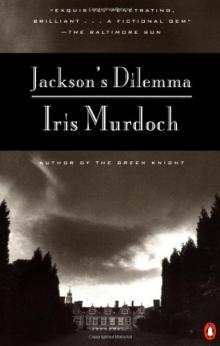 Jackson's Dilemma
Jackson's Dilemma The Flight From the Enchanter
The Flight From the Enchanter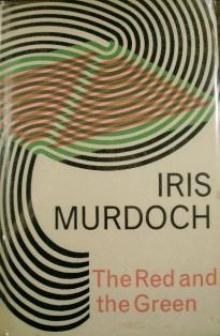 The Red and the Green (Vintage Classics)
The Red and the Green (Vintage Classics)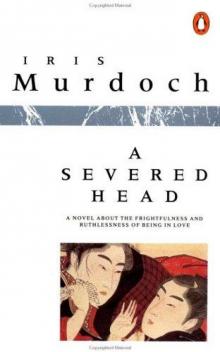 A Severed Head
A Severed Head The Black Prince
The Black Prince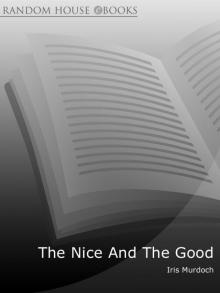 The Nice and the Good
The Nice and the Good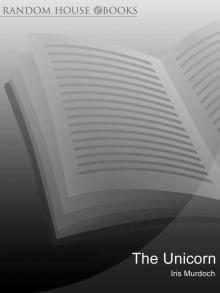 The Unicorn
The Unicorn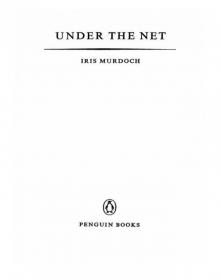 Under the Net
Under the Net The Italian Girl
The Italian Girl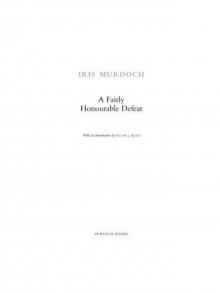 A Fairly Honourable Defeat
A Fairly Honourable Defeat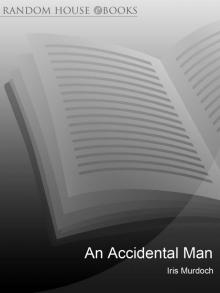 An Accidental Man
An Accidental Man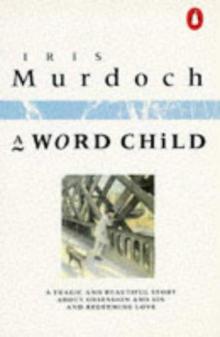 A Word Child
A Word Child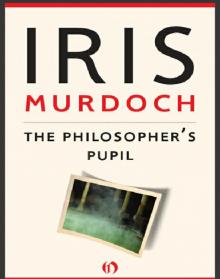 The Philosopher's Pupil
The Philosopher's Pupil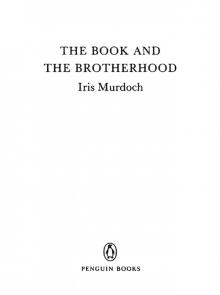 The Book and the Brotherhood
The Book and the Brotherhood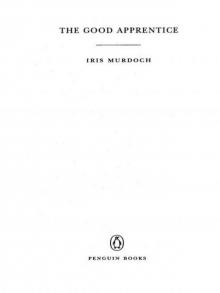 The Good Apprentice
The Good Apprentice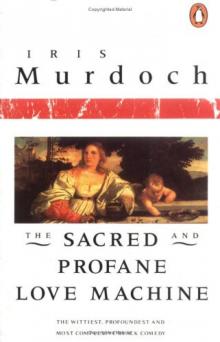 The Sacred and Profane Love Machine
The Sacred and Profane Love Machine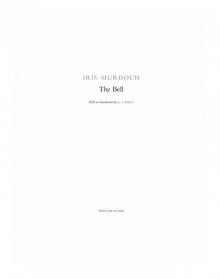 The Bell
The Bell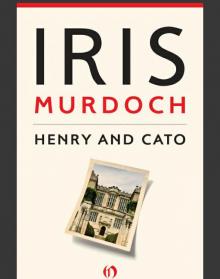 Henry and Cato
Henry and Cato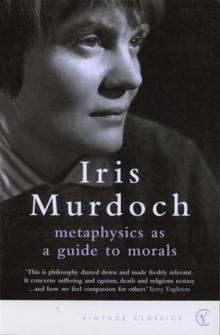 Metaphysics as a Guide to Morals
Metaphysics as a Guide to Morals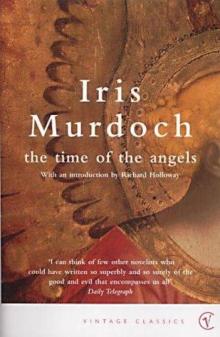 The Time of the Angels
The Time of the Angels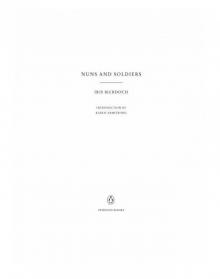 Nuns and Soldiers
Nuns and Soldiers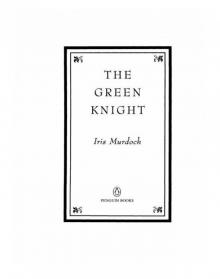 The Green Knight
The Green Knight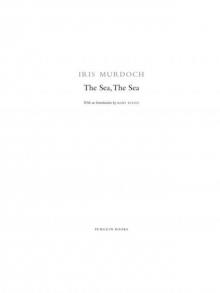 The Sea, the Sea
The Sea, the Sea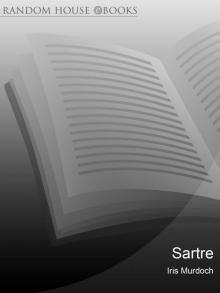 Sartre: Romantic Rationalist
Sartre: Romantic Rationalist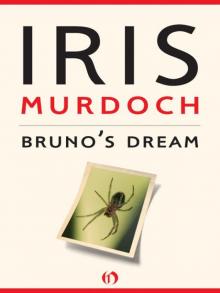 Bruno's Dream
Bruno's Dream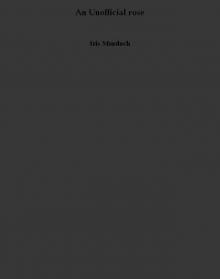 An Unofficial rose
An Unofficial rose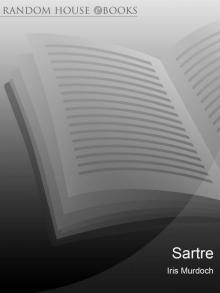 Sartre
Sartre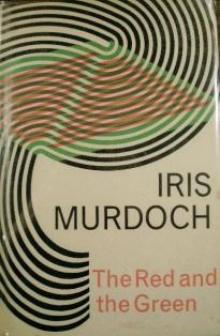 The Red and The Green
The Red and The Green